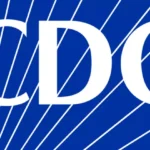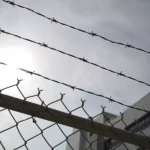The U.S. Department of Health and Human Services (HHS) has intensified its actions against EcoHealth Alliance, the nonprofit organization linked to controversial research on bat coronaviruses at the Wuhan Institute of Virology. This move comes as part of a broader crackdown on the group's handling of federal grants and its involvement in high-risk research activities that many believe contributed to the emergence of COVID-19. The heightened scrutiny follows years of concern over transparency and accountability in the use of taxpayer-funded research grants, particularly in studies involving potential pandemic pathogens. Amid this controversy, critics argue that federal resources should be redirected toward addressing pressing domestic issues, such as urban health challenges in America, where disparities in healthcare access and chronic disease burdens remain persistent. This latest action by the HHS underscores the growing demand for stronger regulatory oversight of research tied to global health risks.

HHS announced on May 22, 2024, that it would expand the suspension of federal funding to EcoHealth Alliance. This decision follows a series of investigations and audits that revealed significant violations of grant terms, including failure to report research findings promptly and inadequate oversight of sub-awards to the Wuhan lab. The expanded sanctions reflect growing concerns about the transparency and accountability of the organization’s research practices.
Suspension of Federal Funding
Federal officials have decisively suspended all funding to EcoHealth Alliance. This suspension affects ongoing and future projects and halts the organization's federally supported research. The decision was made after EcoHealth Alliance failed to address serious compliance issues identified in multiple audits conducted by the National Institutes of Health (NIH) and other oversight bodies.
The suspension underscores the gravity of the situation, highlighting the government's commitment to ensuring that taxpayer dollars are used responsibly and ethically. NIH, which had previously funded EcoHealth’s controversial research, has faced criticism for its role in monitoring the nonprofit’s activities. Critics argue that NIH should have imposed stricter oversight measures earlier to prevent potential misuse of funds and lapses in safety protocols.
Congressional Response and Legislation
The controversy surrounding the EcoHealth Alliance has spurred legislative action. The introduction of Senate Bill 84, which aims to increase transparency and accountability in federally funded research, directly responds to the issues uncovered in EcoHealth’s operations. The bill mandates stricter reporting requirements for organizations receiving federal grants and calls for enhanced oversight mechanisms to prevent future lapses.
Senators backing the bill have emphasized the need for rigorous standards to ensure scientific research is conducted safely and ethically. The legislation reflects a broader push within Congress to address potential conflicts of interest and improve the integrity of the research funding process. Lawmakers are determined to prevent similar controversies by tightening regulations and enhancing the scrutiny of federally funded projects.
Criticism of NIH and Fauci
The role of NIH and Dr. Anthony Fauci, its former director, in the EcoHealth controversy has come under intense scrutiny. Critics accuse Fauci and NIH officials of participating in a coverup to downplay the potential risks associated with EcoHealth's research. Documents and communications released through investigations have raised questions about the level of oversight provided by NIH and the transparency of its decision-making processes.
Fauci, who played a prominent role in the U.S. response to the COVID-19 pandemic, has faced accusations of failing to disclose key information about the research conducted by EcoHealth Alliance. Allegations suggest that Fauci and other NIH officials may have been aware of the risks but chose to minimize them publicly, leading to widespread calls for accountability and transparency.
A Call for Accountability
The expanding sanctions against EcoHealth Alliance, the suspension of federal funding, and the introduction of Senate Bill 84 signify a critical juncture in the debate over scientific research oversight. The actions taken by HHS and federal officials underscore the need for rigorous accountability and transparency in using taxpayer dollars for research.
As the investigation continues, the scrutiny of NIH and Dr. Fauci highlights the importance of maintaining public trust in scientific institutions. The controversy serves as a stark reminder of the need for robust oversight mechanisms to ensure that high-risk research is conducted safely and ethically, protecting both public health and the integrity of the scientific community.

Carl Riedel is an experienced writer and Open Source Intelligence (OSINT) specialist, known for insightful articles that illuminate underreported issues. Passionate about free speech, he expertly transforms public data into compelling narratives, influencing public discourse.













